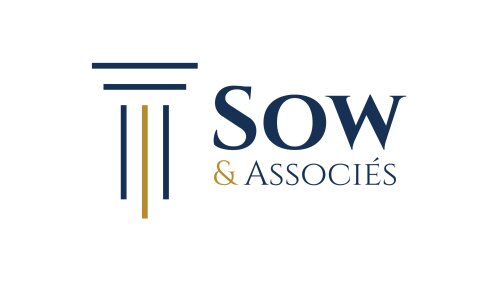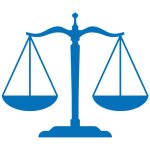Best Faith-Based Law Lawyers in Senegal
Share your needs with us, get contacted by law firms.
Free. Takes 2 min.
Or refine your search by selecting a city:
List of the best lawyers in Senegal
About Faith-Based Law in Senegal
Faith-Based Law in Senegal is an integral part of the country’s legal system, reflecting the significant role that religion, particularly Islam, plays in the lives of its citizens. Senegal is predominantly Muslim, and Islamic law, or Sharia, influences many aspects of personal and family life. This is most evident in matters such as marriage, divorce, inheritance, and religious practice. While the national legal system also incorporates elements of French civil law from its colonial past, faith-based legal considerations remain crucial in achieving justice and social harmony within the community.
Why You May Need a Lawyer
There are several situations where individuals may require legal assistance in the realm of Faith-Based Law in Senegal. Common cases include navigating marriage contracts and conditions under Islamic law, resolving disputes arising from family or inheritance matters, and understanding religious rights in the workplace. Attorneys specialized in Faith-Based Law can provide clarity and advocacy, particularly when traditional practices intersect with secular law.
Local Laws Overview
Senegal’s legal system encompasses a blend of civil and religious laws. Key aspects relevant to Faith-Based Law include:
- Marriage and Divorce: Marriage may be conducted under Islamic law, which has specific requirements for dowries and can allow for polygamous unions. Divorce can be granted for a variety of reasons, under conditions agreed upon in the marriage contract.
- Inheritance: Islamic inheritance law stipulates specific shares of an estate that must go to certain relatives, aiming to ensure fair distribution according to religious teachings.
- Adjudication of Disputes: Many community disputes, especially those related to family matters, are resolved through traditional or religious arbitration, which authorities often recognize.
Frequently Asked Questions
1. What is the role of Imams in Faith-Based Law in Senegal?
Imams often serve as community leaders and can provide both religious guidance and arbitrate in disputes, particularly those related to family matters.
2. Can Faith-Based Law overrule civil law in Senegal?
No, civil law remains supreme, but Faith-Based Law is applied in personal matters where the involved parties are in agreement, especially within the Muslim community.
3. How are divorces handled under Faith-Based Law?
Divorces may proceed through religious arbitration, focusing on mutual consent and adherence to terms set out in the marriage contract.
4. Are there multiple legal systems operating in Senegal?
Yes, Senegal operates a dual legal system, incorporating both civil law and customary law, including Faith-Based Law, particularly in personal matters.
5. Can non-Muslims be affected by Faith-Based Law?
Generally, Faith-Based Law applies specifically to issues concerning Muslims. Non-Muslims typically are governed by civil legal codes unless they voluntarily submit to religious arbitration.
6. How is child custody determined under Faith-Based Law?
Custody decisions are guided by the best interest of the child, with preference often given to the mother during early childhood, following Islamic principles.
7. What are the inheritance rights for women under Islamic law in Senegal?
While Islamic law provides specific shares for women, ensuring they receive inheritance, these shares are generally less than those allocated to men.
8. Are there legal protections for religious expression in the workplace?
Yes, religious rights are protected, and employees are entitled to practice their religion freely, subject to the rights of others and the demands of the workplace.
9. How can conflicts between civil and Faith-Based Law be resolved?
Conflicts are typically resolved through discussion and mutual consent, with arbitration by religious leaders or recourse to civil courts if necessary.
10. Is legal representation necessary in Faith-Based Law matters?
While not always mandatory, having legal representation can provide clarity and ensure fair treatment, particularly in complex cases involving both civil and religious laws.
Additional Resources
For those seeking guidance, several resources are available in Senegal:
- Ministry of Justice: Provides information on legal rights and obligations.
- Local Imams and Religious Leaders: Offer advice and mediation services in religious matters.
- Non-Governmental Organizations (NGOs): Such as the Association of Women Lawyers of Senegal, provide support and legal advice.
- Community Arbitration Centers: Facilitate the resolution of disputes according to traditional and religious customs.
Next Steps
If you require legal assistance in Faith-Based Law in Senegal:
- Identify your specific legal concern, whether it's related to marriage, inheritance, or another area.
- Consult with a lawyer experienced in Faith-Based Law to understand your rights and obligations.
- Reach out to local community leaders or religious authorities for initial advice or mediation.
- Consider mediation or arbitration as an option before pursuing formal legal action.
- Ensure that any agreements or resolutions adhere to both civil law and your personal or religious beliefs.
Lawzana helps you find the best lawyers and law firms in Senegal through a curated and pre-screened list of qualified legal professionals. Our platform offers rankings and detailed profiles of attorneys and law firms, allowing you to compare based on practice areas, including Faith-Based Law, experience, and client feedback.
Each profile includes a description of the firm's areas of practice, client reviews, team members and partners, year of establishment, spoken languages, office locations, contact information, social media presence, and any published articles or resources. Most firms on our platform speak English and are experienced in both local and international legal matters.
Get a quote from top-rated law firms in Senegal — quickly, securely, and without unnecessary hassle.
Disclaimer:
The information provided on this page is for general informational purposes only and does not constitute legal advice. While we strive to ensure the accuracy and relevance of the content, legal information may change over time, and interpretations of the law can vary. You should always consult with a qualified legal professional for advice specific to your situation.
We disclaim all liability for actions taken or not taken based on the content of this page. If you believe any information is incorrect or outdated, please contact us, and we will review and update it where appropriate.
Browse faith-based law law firms by city in Senegal
Refine your search by selecting a city.










